Re-exporting oranges: is Spain taking over the role of the Netherlands?
The smallest orange crop in the last twenty years was especially significant in Spain as of December 2022. Simultaneously, there has been a large increase in imports from Egypt, part of which have been destined for re-export. In view of the trend, it is worth asking whether Spain is losing its leadership in orange production and exports to its main competitor, Egypt.
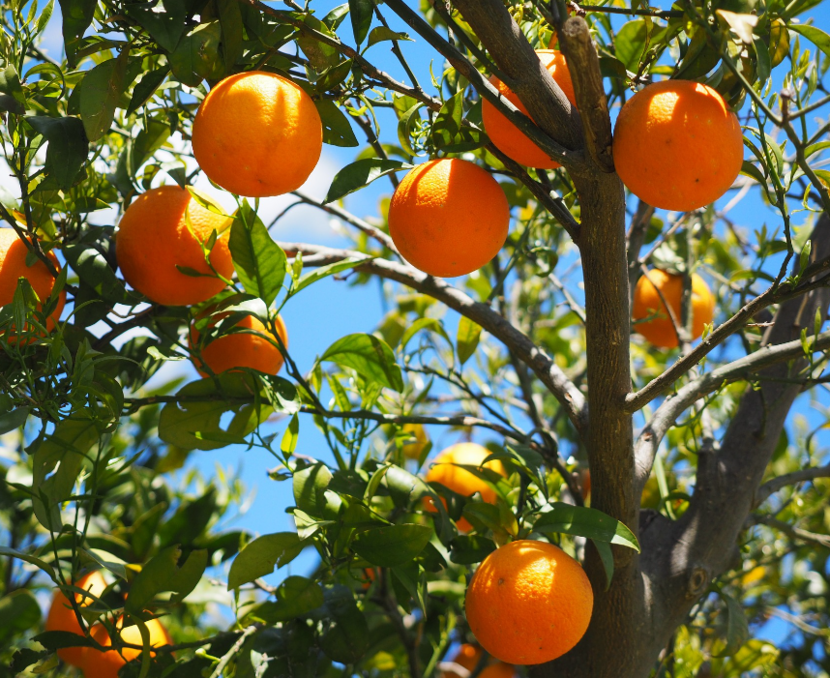
The export of oranges from Spain in the 2022-2023 season, compared to the figures of the previous season (Fig. 1), is clearly lower, especially from the end of December onwards.
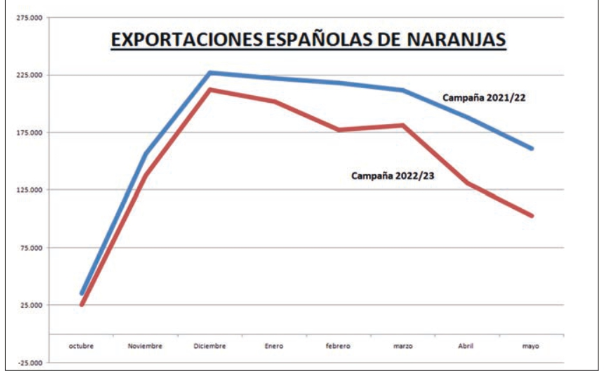
This is partly due to a significant drop in production according to data from the Ministry of Agriculture (Fig. 2).
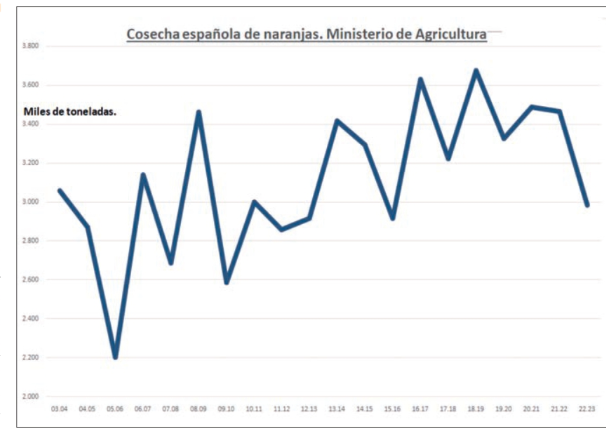
At the same time, a very significant increase in imports took place, between January and May 2023 (Table 1), and it is already known that in June of this year more than 15,000 tons have been imported from Egypt and during the first three weeks of July about 10,000 tons.
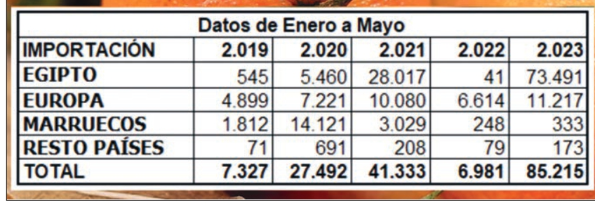
According to consultant Francisco Borrás, these imports have been used both for the Spanish domestic market and to meet export commitments to customers outside Spain. So Mr. Borrás deduces that Spanish marketers seem to have taken over the re-export activity usually led by the Netherlands.
Spanish citrus traders that until now operated basically with citrus from the southern hemisphere, when Spanish cold stores were empty, have expanded their trade operations with Egypt, the main competitor of Spanish oranges in the Mediterranean. This is similar to the case developed by avocado marketers. With a domestic harvest for only 4 months, today they are marketers and exporters all twelve months of the year, capitalizing on avocado imports and using them partly for the domestic market and partly for re-export.
Is Spain's loss of leadership in oranges cyclical or structural?
According to FAO data, it was known that in calendar year 2019 (Fi. 3), Egypt had surpassed Spain in exports, which is likely to be repeated in 2022 and 2023.
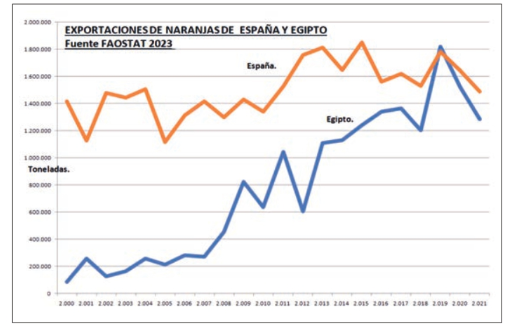
Mr. Borrás says that it is too early to know if Spain has lost its leadership to Egypt, but he does point out that there are little encouraging data due to the circumstances surrounding Spanish production.
At present, in Spain, 50% of oranges are grown in the Valencia Region and 45% in Andalusia. In the Valencia region, the abandonment of citrus plots is slow but steady. In Andalusia, 65% of its oranges are grown in the Guadalquivir Valley, where there is a serious water shortage problem. Therefore, in the short and medium term, the production of oranges in Spain is not going to grow. Without forgetting the evolution in production over the last 20 years shown in Fig. 2, the possibility of Egypt maintaining its position as the leader in orange exports is high.
One more not positive fact to add is the drop in orange consumption, as shown in the latest report on household consumption by Spain’s ministry of Agriculture (Fig. 4).
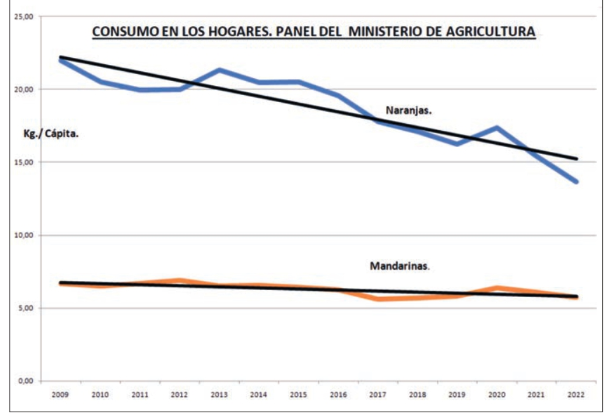
What about the future?
Last year's approval of a Comprehensive Citrus Plan by the Valencian government may mark for Borrás a roadmap towards the recovery of citrus in this Spanish region. For the Valencian consultant it is "clearly one of the best areas in the world for citrus cultivation and, in addition, it has good land, good growers and is also not short of water".
Source: La extraña campaña de naranjas 2022/2023 (valenciafruits.com)

Mocht u interesse hebben in de Spaanse groenten- en fruitsector, dan is de volgende informatie wellicht ook interessant voor u: https://www.agroberichtenbuitenland.nl/landeninformatie/spanje/nieuws/2023/07/04/inschrijving-handelsmissie-hergebruik-reststromen-groenten-en-fruit-spanje-geopend